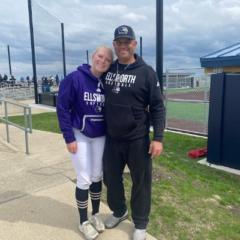Activity
Mon
Wed
Fri
Sun
Feb
Mar
Apr
May
Jun
Jul
Aug
Sep
Oct
Nov
Dec
What is this?
Less
More
Memberships
"Train With The Pack"
119 members • Free
3 contributions to "Train With The Pack"
Interview with Coach Matt Phillips (CEO/Founder of Pro Athlete Advantage)
The Importance of Mental Toughness in Sports Mental toughness is often touted as a critical component of athletic success, yet it remains one of the most misunderstood concepts in sports. While physical skills and talent are essential, the mental aspect can be the differentiator between good and great athletes. Mental toughness encompasses resilience, focus, and the ability to manage emotions under pressure. Athletes who cultivate these traits are better equipped to handle the ups and downs of competition, making it crucial for coaches to prioritize mental training alongside physical preparation. Creating a Holistic Athlete: Beyond the Field The concept of a holistic athlete goes beyond just excelling in their sport; it involves developing well-rounded individuals who can thrive in various aspects of life. Coaches play a pivotal role in this development by fostering an environment that encourages personal growth, emotional intelligence, and leadership skills. By integrating mental training into their coaching practices, they can help athletes build confidence, improve their decision-making skills, and enhance their overall performance both on and off the field. The Role of Coaches in Mental Development Coaches are not just instructors of physical skills; they are also mentors who can significantly influence an athlete's mental development. By adopting a coaching philosophy that emphasizes mental toughness, coaches can create a culture of accountability and resilience within their teams. This involves teaching athletes how to set goals, manage stress, and maintain a positive mindset, which are all essential skills for success in sports and life. Coaches who prioritize mental training can help their athletes navigate challenges more effectively, leading to improved performance and personal growth. Building a Supportive Community Creating a supportive community is vital for fostering mental toughness among athletes. This community includes coaches, teammates, parents, and mentors who encourage open communication and collaboration. When athletes feel supported, they are more likely to take risks, learn from failures, and push their limits. Coaches can facilitate this by promoting teamwork, encouraging peer feedback, and creating opportunities for athletes to share their experiences and challenges. A strong community not only enhances individual performance but also strengthens team dynamics.
Interview with Larissa Mills - Founder & CEO of The Mental Game Academy
The Impact of Technology on Youth Development In today's digital age, the pervasive influence of technology, particularly smartphones, has significantly altered the landscape of youth development. Children and teenagers are spending an unprecedented amount of time on their devices, often at the expense of essential life skills. Research indicates that by the age of 16, young people have spent approximately 18,000 hours on their phones, leading to a concerning gap in social skills, emotional regulation, and cognitive development. This shift has profound implications, especially for young athletes who are expected to perform at high levels. The challenge lies in balancing technology use with the development of critical interpersonal skills and mental resilience. Understanding the Mental Game Academy's Approach The Mental Game Academy (MGA) is dedicated to addressing the mental and emotional challenges faced by young athletes in the context of their digital lives. By focusing on mental resilience, MGA equips athletes with the tools they need to navigate the pressures of competition while managing their technology use. The academy's programs are designed to help athletes regain control over their mental state, reduce phone dependency, and enhance their performance. Through structured training, athletes learn to cope with setbacks, manage their emotions, and develop a growth mindset, all of which are crucial for success both on and off the field. The Role of Parents in Managing Technology Use Parents play a pivotal role in shaping their children's relationship with technology. Establishing boundaries around phone use is essential for fostering healthy habits. Simple strategies, such as keeping phones out of the bedroom at night, implementing no-phone zones during family meals, and encouraging device-free activities, can significantly improve family dynamics and communication. By modeling healthy technology use and engaging in open discussions about the impact of screens on mental health, parents can help their children develop a balanced approach to technology that prioritizes real-world interactions and emotional well-being.
Interview with Cheri Naudin - Founder and Owner of Collegiate Sports Advocate
Understanding the Role of a Collegiate Sports Advocate In the competitive landscape of collegiate sports, the role of a sports advocate has become increasingly vital. A collegiate sports advocate serves as a bridge between aspiring student- athletes and college coaches, ensuring that athletes are not only seen but also understood in terms of their unique talents and potential. This role is particularly important in a system where many parents and athletes may feel overwhelmed by the recruiting process. An advocate provides guidance, support, and strategic advice, helping families navigate the complexities of recruitment, from understanding NCAA regulations to identifying the right camps and showcases. The Importance of Early Evaluation and Feedback One of the key themes in the discussion around collegiate sports advocacy is the significance of early evaluation and feedback. Many parents mistakenly believe that the recruiting process begins in junior year, but in reality, it starts much earlier. Advocates emphasize the need for athletes to be evaluated in their eighth and ninth grades, allowing them to receive constructive feedback that can shape their development. This proactive approach helps athletes understand their current skill levels and what they need to improve, ultimately positioning them better for recruitment when the time comes. The Misconceptions of Social Media in Recruitment In today's digital age, social media has become a double-edged sword for aspiring athletes. While it offers a platform for showcasing talent, many parents and athletes fall into the trap of over-relying on social media for recruitment. Advocates stress that simply posting highlight reels on platforms like Twitter or Instagram is not enough. College coaches are inundated with content and often overlook generic posts. Instead, advocates encourage a more targeted approach, where athletes engage directly with coaches and provide them with meaningful content that showcases their skills in a relevant context.
1-3 of 3
@coach-freddie-cecchini-9945
Playing Life’s Game: Bringing Out The Best In People, Athletes and Entrepreneurs. It's Having Meaningful Strategies & Practicing Lifestyle Disciplines
Active 596d ago
Joined May 14, 2024
Powered by

